BIBLE GATEWAY Proverbs 29 :: NASB.
Verse 1 states, “He who is often rebuked, and hardens his neck, will suddenly be destroyed, and that without remedy.” Several things can be determined about the person being described in verse 1. First, he refused to listen to others. He may have worked for someone and was told how to do his job. But he not only did not follow the instructions, but he was NOT going to follow the instructions. This same attitude was carried over into other areas of his life. In interacting with family, neighbors, or persons in authority, he would respond the same way. This man may have been consumed with anger, pride, or arrogance, but he was going to go his own way regardless of what anyone else said.
The second half of verse one indicates that nothing good can come from that kind of attitude. As a people, the Israelites had that kind of attitude. Time after time, they were rebuked by the Lord God through Moses and the prophets. For brief periods, they would listen and respond, but soon they were back doing the same things. Finally, the Northern Kingdom was destroyed and then the Southern Kingdom. By the time of the New Testament, the Jews had ended their worship of pagan gods, but in its place, they began to place more importance of their traditions instead of the Will of God. During Jesus’ ministry, He performed miracles that they clearly recognized as miracles, yet they refused to acknowledge that He was the Messiah. Their execution of Jesus, and their continued vicious opposition to the spreading of the Gospel eventually led to the destruction of their nation in 70 A.D.
Verse 7 states, “The righteous considers the cause of the poor, but the wicked does not understand such knowledge.” One of the characteristics of a righteous person is compassion for those that are less fortunate. Sometimes, a person’s condition may be the result of his own actions. The story of the Prodigal Son in Luke 15 describes such a person.
But in many instances, poverty may be due to situations that a person cannot control. Economic depression, the effects of war, natural disasters or even personal illness can suddenly erase a person’s ability to provide for himself or his family. And the only help available comes from the compassion of others.
At the same time, a wicked person not only lacks compassion for the poor or helpless, but he does not even understand the concept. A wicked person may help someone else, but only as far as it will further his own goals. For the wicked, the world is divided into two groups: the victims and the predators. Individuals will seek out the old, the sick, and cheat them out of any money they may have. Why? They simply don’t care what happens to them.
In Matthew 18:23-34, Jesus told the parable of a servant that owed the king 10,000 talents. When confronted, the servant begged for forgiveness and the king felt compassion and forgave him the debt. But then that same servant went out to another servant that owed him a small amount, and when that man asked for forgiveness, the servant refused! Of course, once the king became aware of this, the wicked servant was punished severely.
From this parable, one may wonder, “What was wrong with him?”, “What was he thinking?”. Although the servant was shown compassion, all he knew was that he escaped punishment for his actions, and then he went right back to his own sinful ways. It never occurred to him that he should apply that same compassion thing to others. That attitude is one of characteristics of wickedness.
Verse 13 states, “The poor man and the oppressor have this in common: the Lord gives light to the eyes of both.” This verse describes the relationship between two people. One is in a stronger position than the other. The word oppressor does not necessarily mean a ruler or government. This can describe an individual in a community, a company, a gang, or a lender. The word “poor” does not necessarily mean a righteous person.
In fact, the spiritual condition is not the issue here. The point in this passage is that it does not matter if a person is richer or poorer, weaker or stronger than another. The Lord God provides the same gifts of light, breath, rain, sun, food, and water to every man and woman. But the key is what each person DOES with the gifts and blessings he does have. In Matthew 15:43-48, Jesus said, “You have heard that it was said, ‘You shall love your neighbor and hate your enemy.’ ‘But I say to you, love your enemies and pray for those who persecute you, so that you may be sons of your Father who is in heaven; for He causes His sun to rise on the evil and the good, and sends rain on the righteous and the unrighteous. For if you love those who love you, what reward do you have? Do not even the tax collectors do the same? If you greet only your brothers, what more are you doing than others? Do not even the Gentiles do the same? Therefore, you are to be perfect, as your heavenly Father is perfect.”’
Verse 18 states, “Where there is no revelation, the people cast off restraint; but happy is he who keeps the law.” The last verse of the Book of Judges states, “In those days there was no king in Israel; everyone did what was right in his own eyes.” At the time that the Book of Judges had been written, the Law had been given to the people through Moses. The Tabernacle, priesthood and system of sacrifices were all in place for worship, and the people should have been able to live safely and peacefully with one another.
However, none of that happened because the people did not follow the Will of God. Different areas were invaded by different desert tribes, and even the tribes of Israel fought one another. Probably, every Israelite had some awareness of the Law of Moses, but in most cases, worship and service was at best lukewarm. There was no one to make them “toe the line” in observance to the Law and their worship of the Lord God.
In a more general sense, the institution of government and societal laws were put in place by God to establish a sense of order within an area or group of people. Paul and Peter both dealt with a Christian’s responsibility. Paul wrote in Romans 13:1-3, “Let every soul be subject to the governing authorities. For there is no authority except from God, and the authorities that exist are appointed by God. Therefore, whoever resists the authority resists the ordinance of God, and those who resist will bring judgment on themselves. For rulers are not a terror to good works, but to evil. Do you want to be unafraid of the authority? Do what is good, and you will have praise from the same.” Peter wrote in 1 Peter 2:13-15, “Therefore submit yourselves to every ordinance of man for the Lord’s sake, whether to the king as supreme, or to governors, as to those who are sent by him for the punishment of evildoers and for the praise of those who do good. For this is the will of God, that by doing good you may put to silence the ignorance of foolish men…”
Can governments and laws be arbitrary, unfair and harmful? Yes! Remember that Paul and Peter lived and wrote during the time of the Roman Empire – an efficiently brutal form of government. Can people who govern become corrupt, wicked, evil, and destructive? Again, yes! This is a fallen world, and sin can distort any good work, noble beginnings, and best of intentions. But those that are guilt of such things will pay the price.
But the collapse of law, government, and order has led to terrible actions. History contains a long list of the complete destruction of civilizations. Massacres, holocausts, widespread starvation and disease all come from a collapse of government and the rule of law.
Verse 26 states, “Many seek the ruler’s favor, but justice for man comes from the Lord.” People are drawn to power. They may want part of that power for themselves. The motive may be greed, fear, or revenge. Now, there is nothing wrong in trying to seek assistance to correct a wrong. Luke 18:1-5 states, “Then He (Jesus) spoke a parable to them, that men always ought to pray and not lose heart, saying: ‘There was in a certain city a judge who did not fear God nor regard man. Now there was a widow in that city; and she came to him, saying, ‘Get justice for me from my adversary.’ And he would not for a while; but afterward he said within himself, ‘Though I do not fear God nor regard man, yet because this widow troubles me I will avenge her, lest by her continual coming she weary me.’ ” In Acts 25:9-11, Paul exercised his legal right as a Roman citizen to appeal to Caesar. “But Festus, wanting to do the Jews a favor, answered Paul and said, ‘Are you willing to go up to Jerusalem and there be judged before me concerning these things?’ So, Paul said, ‘I stand at Caesar’s judgment seat, where I ought to be judged. To the Jews I have done no wrong, as you very well know. For if I am an offender, or have committed anything deserving of death, I do not object to dying; but if there is nothing in these things of which these men accuse me, no one can deliver me to them. I appeal to Caesar.’”
So, there is nothing wrong in exercising one’s legal rights or seeking help from a person with the power and authority to help. But even if those rights are ignored or rejected, God ultimately judges. Life is not fair, and nothing in life is certain except for the hope that each Christian has through Jesus Christ.

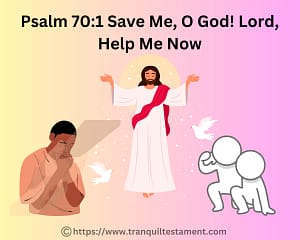

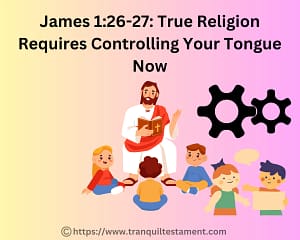
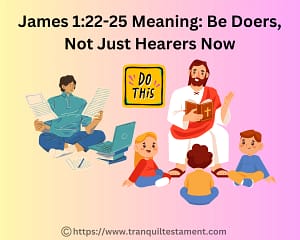
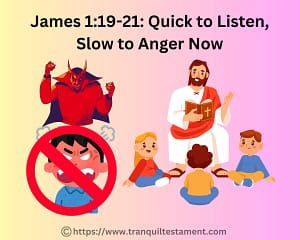
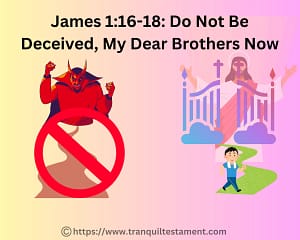
Be First to Comment